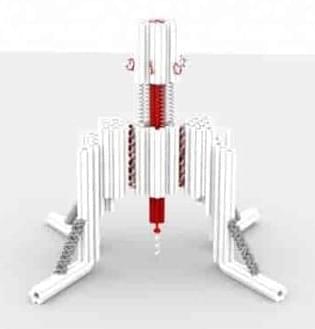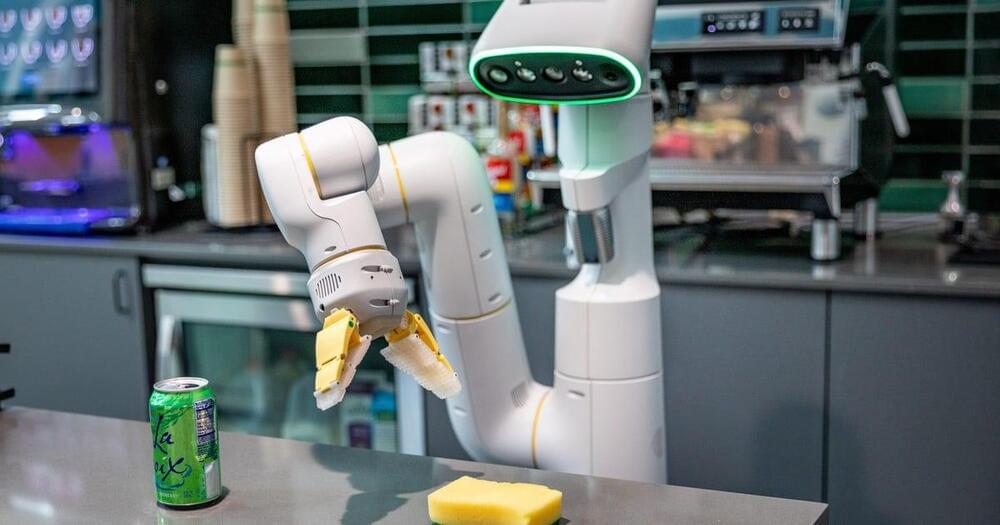New research shows that we might be able to revive bodies we once thought beyond repair. That could increase medical inequities, but it’s still worth pursuing.




Liquid crystals consist of rod-shaped molecules that slosh around like a fluid, and in those that are nematic the molecules are mostly parallel to each other. For devices like TV screens, the odd molecule that faces the wrong way has to be removed during the manufacturing process, but these defects are key for building a liquid crystal computer, says Kos.
In ordinary computers, information is stored as a series of bits, electronic versions of 1s and 0s. In Kos and Dunkel’s liquid crystal computer, the information would instead be translated into a series of defective orientations. A liquid crystal defect could encode a different value for every different degree of misalignment with other molecules.
Electric fields could then be used to manipulate the molecules to perform basic calculations, similar to how simple circuits called logic gates work in an ordinary computer. Calculations on the proposed computer would appear as ripples spreading through the liquid.

Tiny fragments of rock brought back from an asteroid in near-Earth solar orbit are so old, they predate the Solar System.
A new analysis of samples of asteroid Ryugu has revealed the presence of mineral grains forged in the outflows or explosions of old stars before our own Sun formed.
As identified by previous research, these presolar grains reveal Ryugu is very similar to a class of meteorites known as Ivuna-type carbonaceous (CI) chondrites. However, the presence of some fragile grains indicate that parts of Ryugu may be unchanged since the asteroid formed.
Google AI announced the launch of the Google Research YouTube channel today. The channel is set to focus on a wide range of subjects like AI/ML, robotics, theory and algorithms, quantum computing, health and bioscience.

DARPA has launched a competition to find AI solutions that can help with sourcing critical minerals.
Critical minerals are raw, non-fuel materials that are vital for manufacturing products that are essential to national security.
DARPA is teaming up with the US Geological Survey (USGS) to explore how machine learning and AI can accelerate critical mineral assessments.


By scientists from Inserm, CNRS, and Université de Montpellier at the Structural Biology Center in Montpellier. The nano-robot could lead to a closer study of the mechanical forces applied at microscopic levels, which are important for various biological and pathological processes.
The study was published in Nature Communications.
Cellular Mechanosensitivity

You can buy What We Owe the Future here: https://www.basicbooks.com/titles/william-macaskill/what-we-…541618626/
In his new book about longtermism, What We Owe the Future, the philosopher William MacAskill argues that concern for the long-term future should be a key moral priority of our time. There are three central claims that justify this view. 1. Future people matter. 2. There could be a lot of them. 3. We can make their lives go better. In this video, we focus on the third claim.
We’ve had the opportunity to read What We Owe the Future in advance thanks to the Forethought Foundation. They reached out asking if we could make a video on the occasion of the book launch. We were happy to collaborate, to help spread the ideas of the longtermist philosophy as far as possible smile
Interested in donating to safeguard the long-term future of humanity? You can donate to an expert managed fund at: https://www.givingwhatwecan.org/charities/longtermism-fund.
▀▀▀▀▀▀▀▀▀PATREON, MEMBERSHIP, KO-FI▀▀▀▀▀▀▀▀▀▀▀▀▀▀▀▀▀
🟠 Patreon: https://www.patreon.com/rationalanimations.